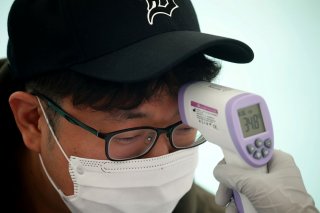South Korea's Itaewon Club Incident Illustrates How Easily the Coronavirus Can Spread
Can America learn anything from this?
Over the last few weeks, any biologist or health care professional worth their grain of salt is sure to have been cringing in terror when beholding the large clusters of people congregating without masks across the United States, either as part of the George Floyd protests or the Memorial Day revelry preceding them. I too support the demands for cultural change and greater racial equality. Nevertheless, I feel it is essential to remind everyone that such activities still present an imminent threat of sparking new waves of coronavirus infections, a risk that must be taken with grave seriousness.
Let me illustrate how easily the coronavirus spreads by telling you a true story from South Korea, where I live and work as a cell biologist. On May 6th, a gentleman tested positive in the city of Yongin, we can call him “Yongin patient #66.” Korea has very advanced contact tracing procedures so, within a few hours, public health authorities were able to discover he had visited five clubs in Seoul’s Itaewon area on May 2nd, putting him in contact with around 1,500 people. The next day, #66’s friend tested positive and a preliminary screen of 114 club-goers returned 11 more cases, putting the country on high alert.
On May 9th, authorities expanded their search to 5,167 individuals, including contacts of the newly diagnosed twelve. By the end of the day, another 24 had tested positive, forcing further expansion of the tracing to 7,222. On May 10th, over 6,000 police officers across the country were recruited to locate contacts and bring them in for testing as soon as possible, a systematic effort to head off the spread of infections.
Each positive result continued to expand the trace radius. By May 12th, 10,905 individuals were being traced by 8,559 officers with 75 new cases, many of whom were family members and work colleagues of earlier patients. By May 14th, over 15,000 had been tested with 31 new cases. Most were now tertiary or quaternary contacts of #66, people infected indirectly through one or two intermediaries.
Over 110,000 have been tested in connection with patient #66 and a total of 277 have tested positive. The outbreak now seems contained with most new cases diagnosed over the last few weeks having been infected through four or five intermediaries while visiting bars, weddings, and funerals. These environments put people into close proximity, much like a protest or Memorial Day party.
Even with the most advanced contact tracing methods in the world and literally thousands of law enforcement officers called in to head off the spread of virus in real-time, a single person was still able to cause 277 infections over the course of five weeks. This is despite Koreans being exceptionally good about wearing masks and observing social distancing. Imagine if either had not been true.
I am sure patient #66 didn’t know he was infected when he went to those clubs. I am sure he didn’t mean to get others sick. I can not help but feel this will be a common sentiment shared by many Americans by the end of summer. As well intentioned as the protests are, they are, unfortunately, putting people in danger, irrespective of the legitimacy and necessity of their cause.
I hope to the bottom of my heart that summer heat is able reduce or halt the spread of the virus. I really do. The science, unfortunately, compels me to a different conclusion. The virus is here to stay and there will be new outbreaks coming soon, even more if people continue to gather in dense, unprotected clusters.
Justin Fendos is a professor at Dongseo University in South Korea.
Image: Reuters

